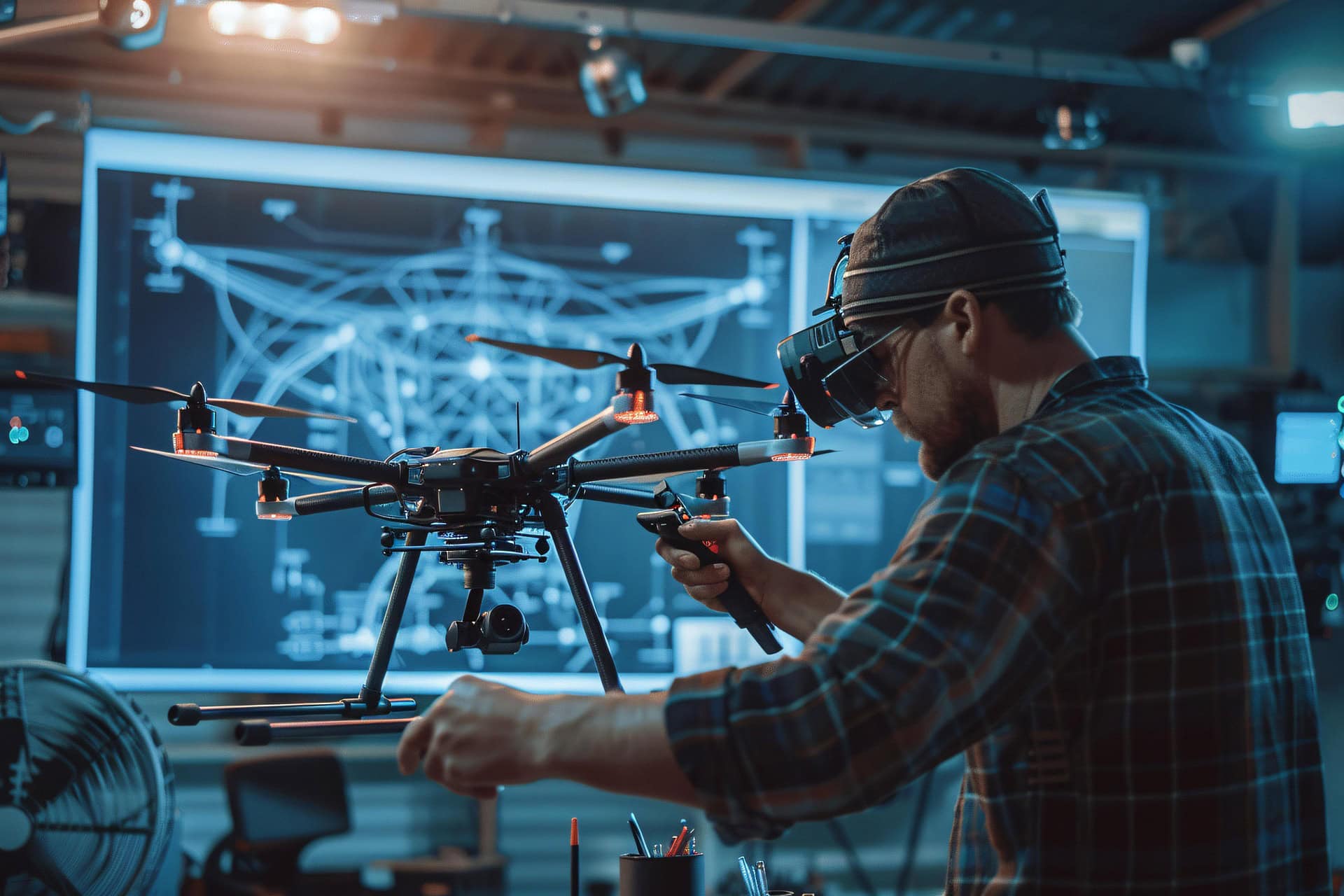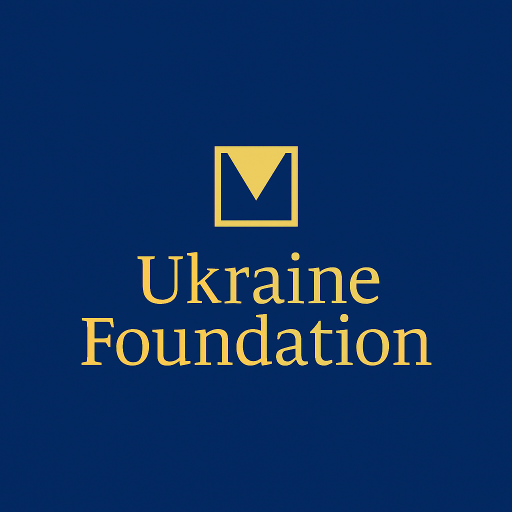Ukraine Foundation
Inspiring Change, Driving Impact
Taking Ukraine’s Innovation to the Global Stage

Ukraine Innovation Catalyst Fund (UICF) is a distinct C-type venture capital fund -launching in Q4 2025- dedicated to accelerating the growth of Ukraine’s innovation ecosystem. As a catalytic investor, Ukraine Innovation Fund strategically bridges the gap between groundbreaking Ukrainian technology and global markets. Our mission is to identify, invest in, and elevate high-potential startups and research-driven ventures that position Ukraine as a leading hub of deep-tech and digital innovation.

Vision & Purpose
Ukraine Innovation Fund operates with a dual focus: to foster sustainable economic development in Ukraine and to bring Ukrainian ingenuity to the world stage. In a time of transformation and resilience, Ukraine Innovation Fund plays a pivotal role in nurturing scalable solutions across sectors such as technology, cybersecurity, and digital infrastructure.
Strategic Model
As a C-type (catalytic) venture fund, Ukraine Innovation Fund de-risks early-stage investment through blended finance models, co-investments, and strategic partnerships. We actively collaborate with governments, financial institutions, technology companies, and mission-aligned funds to unlock capital and technical support for our portfolio companies.
Key Activities
• Seed & Early-Stage Investment: Funding innovative startups with strong teams, IP assets, and scalable models.
• Acceleration Programs: Providing mentorship, market access, and business development support.
• Research Commercialization: Supporting the transition of R&D from labs into commercially viable enterprises.
• Global Network Building: Connecting Ukrainian innovators with strategic partners.
Impact Goals
Ukraine Innovation Fund is more than a fund; it is an engine for national renewal and innovation diplomacy. By fostering resilient, future-facing enterprises, UIF aims to:
• Create high-value jobs and retain top talents within the United States, the United Kingdom, and Ukraine.
• Drive tech sovereignty and digital competitiveness.
• Enable Ukraine’s transition to a knowledge-based economy.
Berlin and Kyiv: On 24 July 2025, Ukraine Foundation and the Professional Government Association of Ukraine co-hosted an Expresso online session with Professor Theocharis N. Grigoriadis, our Distinguished Senior Fellow for Eastern European Affairs and Economics. The event, “Political Economy of Food Security: Evidence from Ukrainian & Russian Wheat Exports to Africa”published with the Kyiv School of Economics, Free University Berlin, and the European University of Viadrina.

Presenting his groundbreaking study co-authored with Pavlo Martyshev, Oleg Nivievskyi, and Ivan Kolodiazhnyi under the auspices of the Kyiv School of Economics, Free University Berlin, and the European University of Viadrina, Professor Grigoriadis discussed new evidence on the dynamics of grain exports and their geopolitical implications. He highlighted how the full-scale war in Ukraine has disrupted global food supplies, with Africa—heavily dependent on Ukrainian and Russian wheat—emerging as a focal point in the weaponization of grain trade.
The presentation unpacked the political and economic strategies at play in the global wheat market and emphasized what Ukraine must do to restore competitiveness while countering Russia’s manipulation of food insecurity as a geopolitical tool. Participants engaged with Professor Grigoriadis in an interactive Q&A, exploring practical ways for policymakers, agribusiness leaders, and researchers to address vulnerabilities in food security.
This session pursued our joint Expresso series with the Professional Government Association of Ukraine and underscored our commitment to advancing rigorous, policy-relevant research that not only addresses Ukraine’s challenges but also contributes to solving critical global issues at the intersection of economics, security, and geopolitics.
About Pr. Theocharis Grigoriadis
Professor Theocharis N. Grigoriadis holds the W-2 Professor position with tenure at Freie Universität Berlin’s Department of Economics and Institute of East European Studies, where he has served since 2014.
A prolific researcher, Professor Grigoriadis has authored over 40 peer-reviewed articles in leading journals including the Journal of Economic History, European Economic Review, Journal of Conflict Resolution, and China Economic Review. His research spans diverse topics from the political economy of religious institutions to energy economics, climate change, and regional development. His book “Religion & Comparative Development: The Genesis of Democracy & Dictatorship” (Edward Elgar, 2018) exemplifies his innovative approach to understanding the deep historical roots of modern economic and political systems.
Currently, he is completing two major monographs: “Muscovy as New Byzantium: Imperial Political Economies & Orthodox Systems in Ivan IV. the Terrible” and “Spies & Revolutionaries: Imperial Russia’s Foreign Intelligence & the Defense of National Security,” which demonstrate his expertise in Russian imperial history and its contemporary relevance.
Professor Grigoriadis has secured over €1.5 million in competitive research funding from prestigious agencies including the German Research Foundation (DFG), German Academic Exchange Service (DAAD), and the European Commission. He serves as Program Director for multiple international partnerships, including the “Integrated Master of Science in Economic Systems” with the University of Belgrade and various German-foreign university collaborations spanning Russia, Ukraine, Georgia, Uzbekistan, and other Eastern European nations.
His extensive international network includes affiliations with the Hellenic Foundation for European & Foreign Policy, American University of Beirut, and research fellowships at Stanford’s Hoover Institution and Sabancı University’s Istanbul Policy Center. He has supervised over 150 completed theses at bachelor’s, master’s, and doctoral levels, mentoring the next generation of scholars in economics and area studies.
Beyond academia, Professor Grigoriadis contributes to policy through advisory roles with international organizations including the Open Society Foundations and UN Economic & Social Commission of Western Asia. His expertise in energy economics, climate policy, and post-conflict development has informed policy discussions from the Middle East to Central Asia.
Professor Grigoriadis holds multiple doctoral degrees from leading institutions: a PhD in Political Science from UC Berkeley (2012), a PhD in Economics from Saint Petersburg State University (2012), and is currently completing a PhD in Slavic Literatures and Cultures at Humboldt Universität zu Berlin. His educational foundation includes an MA in Russian and East European Studies from Yale University (2005) and an LLM from the University of Athens (2007). This interdisciplinary background uniquely positions him at the intersection of economics, political science, and cultural studies.
Fluent in eight languages including Greek, English, German, Russian, and Ukrainian, Professor Grigoriadis embodies the international perspective essential for understanding complex economic transitions and development patterns across cultures and political systems. His work bridges rigorous quantitative analysis with deep historical and cultural understanding, making him a leading voice in comparative economics and the study of institutional development in transition economies.
The discussion was moderated by Dr. Kostiantyn Lisnychyi.
Milan: Natalie Shkarban At Ukraine Recovery Conference’s Milan Preparatory Business Forum

On 5 March 2025, Milan hosted the pivotal “On the Road to URC 2025” business forum, marking a significant milestone in the lead-up to the Ukraine Recovery Conference (URC) scheduled for 10–11 July in Rome. This preparatory event convened over 550 representatives from 23 countries, including government officials, international financial institutions, and private sector leaders, to strategize Ukraine’s post-war reconstruction and economic revitalization.
Keynote speakers included Ukrainian Prime Minister Denys Shmyhal (via video message), First Deputy Prime Minister Yuliia Svyrydenko, Italian Foreign Minister Antonio Tajani, and Lombardy Region President Attilio Fontana. Their addresses underscored the urgency of mobilizing international investment and fostering public-private partnerships to rebuild Ukraine’s infrastructure, energy systems, and industrial base.
Discussions at the forum focused on several strategic areas:
• Investment and Financing: Exploring mechanisms to attract foreign capital, including risk insurance and government incentives.
• Energy Resilience and Green Transition: Promoting sustainable energy solutions and the development of a green energy system in Ukraine.
• Industrial Production and SMEs: Enhancing local manufacturing capabilities and integrating Ukrainian small and medium-sized enterprises into global supply chains.
• Infrastructure and Housing: Reconstructing critical infrastructure and providing housing solutions for internally displaced persons.
The event also highlighted collaborative initiatives such as the partnership between Lombardy and Zaporizhzhia regions and the presentation of a master plan for Mykolaiv’s recovery.
This Milan forum set the stage for the upcoming URC 2025 in Rome, which aims to consolidate international support and secure tangible commitments for Ukraine’s reconstruction efforts.
Join Us
The Board welcomes businesses, investors, policymakers, and thought leaders to collaborate in driving Ukraine’s economic success. Together, we can build a strong, competitive, and resilient Ukraine on the global stage.
For partnerships and inquiries, contact us at:
By phone: +1-202 966 7800
By email: trade&investment@ukrainefoundation.org
